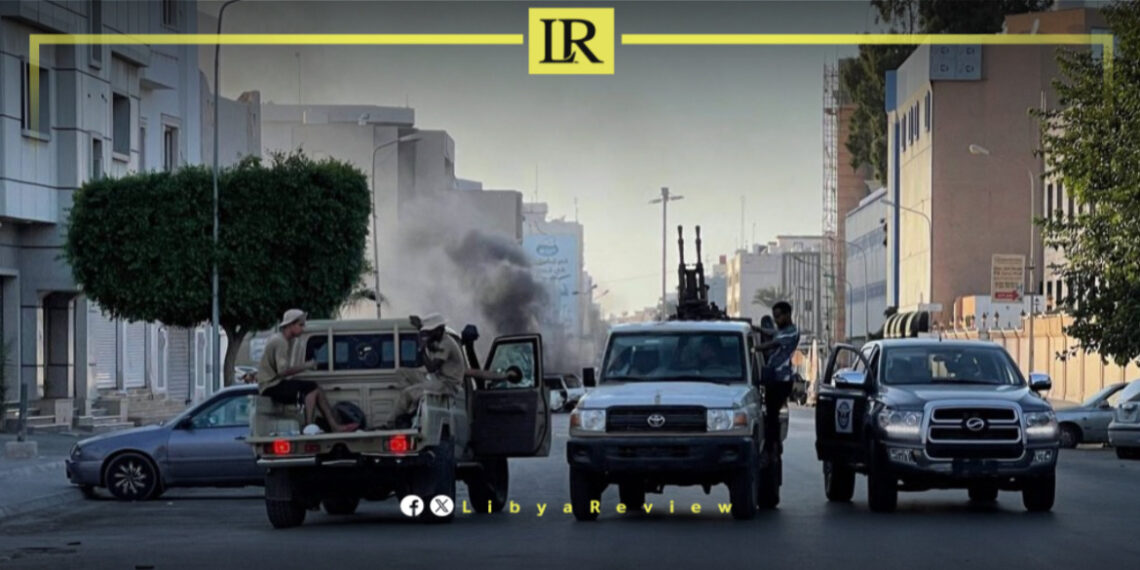The Libyan capital witnessed a renewed deployment of security forces following armed clashes in the early hours of Monday, as the Ministry of Interior announced stepped-up patrols across areas where tensions flared. The actions came shortly after government-affiliated units successfully ended the brief but intense fighting between rival security factions.
According to a statement by the Ministry of Interior, the Law Enforcement Department under the General Directorate of Security Operations reinforced its presence in several neighborhoods considered flashpoints, particularly those affected by the latest unrest. This move is part of broader efforts to uphold the ceasefire and ensure the protection of residents, as well as public and private property.
The Ministry of Defense also issued a statement reaffirming its full commitment to the decisions of the Supreme Commander of the Libyan Army and to the mandate of the temporary committee tasked with overseeing military and security arrangements. The Ministry praised the professionalism of the regular armed forces, noting that they remained disciplined and refrained from engaging in escalation despite provocations.
The Ministry warned against any further violations of the truce and emphasized its readiness to implement measures necessary to maintain sovereignty and public order. It reaffirmed its support for a coordinated redeployment plan, supervised by official state institutions, as part of an effort to restore stability and prevent future conflict.
The clashes erupted in the early hours of Monday between personnel from the Stabilization Support Apparatus and the General Security Agency. The fighting reportedly lasted several hours before rapid response forces intervened to halt the violence and regain control of key sites. No official casualty figures have been released, but the intensity of the confrontation prompted concern among residents.
The Ministry of Defense later confirmed that the situation had been brought under control and that calm had been restored across the affected zones. The episode highlighted the fragile security environment in Tripoli and the importance of coordinated efforts among state institutions to prevent further instability.


